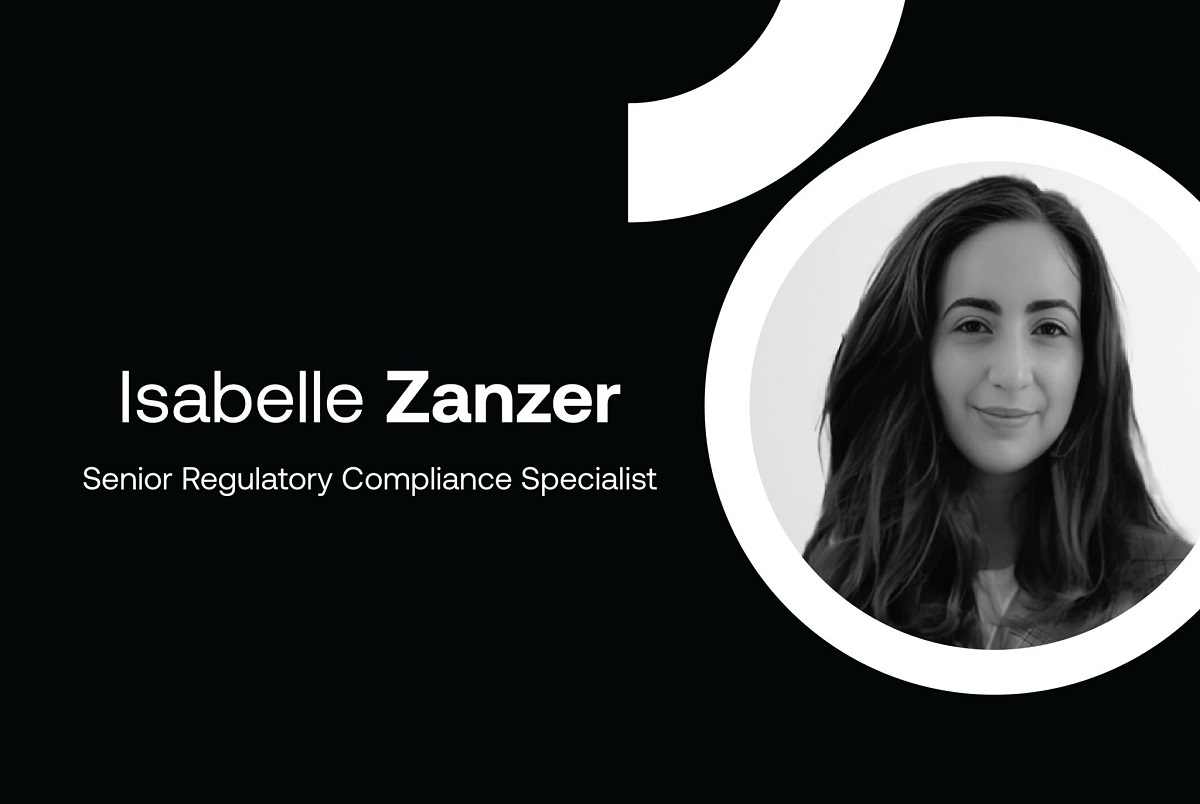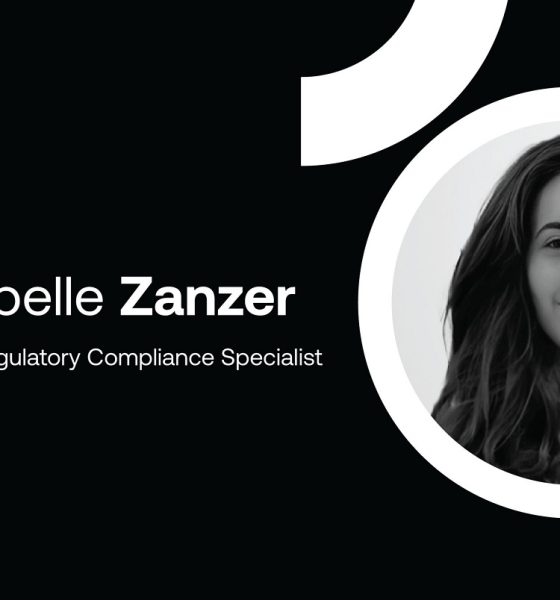

Compliance Updates
Bet on Compliance: Navigating the Stakes with the UK’s Affordability Checks
By Isabelle Zanzer, Senior Regulatory Compliance Specialist at ComplianceOne Group
Feeling like the deck is stacked against you with all these talks of financial checks in gambling? Wondering if this new game plan will leave your privacy on a losing streak? If so, no need to bet on uncertainty anymore. We’re here to deal you in on the UK’s latest gamble towards responsible betting. Let’s shuffle through the details and lay our cards on the table, as we make sure you’re holding a winning hand in understanding what’s in play. Ready to roll the dice and dive in? Follow me.
On July 26, 2023, the UK Gambling Commission launched consultations on proposed reforms in the Gambling White Paper, focusing on areas like direct marketing, age verification, game design, and financial risk checks. This article delves into the latter, highlighting new financial vulnerability and risk assessments to safeguard customers.
The UK’s consultation introduces two checks for gambling: light-touch financial vulnerability checks and detailed financial risk assessments. The first tier of checks is designed to identify financial vulnerabilities such as bankruptcy orders or significant debts, using publicly available data. The second tier involves enhanced financial risk assessments triggered by significant losses, requiring more comprehensive scrutiny of a customer’s financial situation.
Thus, in simple terms, what is going to happen at the heart of the UKGC’s new measures are two-tiered affordability checks designed to assess the financial vulnerability and risk of consumers engaging in online gambling. The first tier involves unintrusive checks that will be triggered when a customer reaches a specified net loss within a rolling period, using publicly available data to identify potential financial vulnerabilities. To dive a little deeper, this check will be conducted if a customer either has net losses of £125 in a rolling 30 days or £500 within a rolling 365 days. It would need to include “at a minimum a customer-specific public record information check for significant indicators of potential financial vulnerability”, including whether the customer is subject to things such as a bankruptcy order, county court judgment, or individual voluntary arrangement. Net loss would be defined as loss of deposited monies with an operator, not counting restacked winnings or bonus funds.
The second tier represents a more detailed assessment of financial risk, which is activated at higher loss thresholds. A comprehensive financial review is required for gamblers with significant losses, examining their financial data including credit status and spending. If third-party data is unavailable, operators may directly seek customer consent for access, ensuring a thorough understanding of financial health.
The gambling industry’s reception of these checks has been cautiously optimistic, particularly regarding the initial, less invasive tier. However, the prospect of more detailed financial assessments has sparked debate, not only among operators but also among consumers wary of privacy infringement.
As the UK gambling sector adapts to these new regulations, the challenge will be to strike an optimal balance between safeguarding consumers and maintaining the operational viability of gambling platforms. The pilot study represents a critical step in this process, offering valuable insights into the practical implications of affordability checks and the potential need for adjustments in response to industry feedback and consumer concerns.
The outcome of the pilot study and subsequent parliamentary debates are pivotal in shaping the future of affordability checks in the UK gambling sector. As operators, regulators, and consumers navigate these changes, the overarching goal remains clear: to foster a safer, more responsible gambling environment that protects consumers from financial harm while ensuring the industry’s sustainable growth.
Striking the right balance in the new UK gambling regulations is like walking a tightrope. With the introduction of light-touch and in-depth financial risk assessments, operators may face the challenge of protecting players without overstepping into their privacy. These two-tiered checks aim to shield those at risk, using both public data and deeper financial insights.
The key here for operators will be to navigate these waters carefully, ensuring player safety while keeping the game fair and enjoyable. Now, when trying to find a balancing act, we need to consider the following:
- Regulatory Compliance Risk: Reviewing the existing practices against the UKGC’s affordability check guidelines, identifying discrepancies, and recommending changes to align with the new regulations.
- Data Privacy and Security Risk: Evaluating the ability to handle and protect sensitive financial data in line with GDPR and other data protection laws.
- Operational Risk: Assessing the impact of the new checks on daily operations and customer interactions.
- Financial Risk: Analysing the potential financial implications of the affordability checks on revenue and customer base.
- Reputational Risk: Considering the public and customer perception of the affordability checks, especially regarding privacy concerns, the key here, like in all relationships, is communication. For example, it is estimated that just the very highest spending 3 percent of accounts would undergo financial risk assessments. Most financial risk assessments – at least 80 percent – would be carried out through credit reference agencies. The checks are expected to be frictionless and not interrupt the customer journey unless concerns are raised. It is estimated that a further 10 percent of risk assessments will be done through limited data-sharing through third-party open-source banking, which is similarly straightforward from a customer perspective.
Finding this balance involves a tailored approach as one offered by ComplianceOne group, whereby operators can personalize checks based on individual player profiles, ensuring those at higher risk receive the attention they need while others continue to enjoy their play with minimal interruption. It’s about creating a safety net that catches those in need without trapping everyone else in unnecessary checks. The key to a winning strategy is the execute this balance, and understanding what is at stake: Reputation, Sustainability and Trust.
The post Bet on Compliance: Navigating the Stakes with the UK’s Affordability Checks appeared first on European Gaming Industry News.
Brazil
ThrillTech secures regulatory approvals to launch jackpots in Latam

Peru and Brazil to provide launchpad for Latam expansion as ThrillTech strengthens presence in emerging regulated markets
ThrillTech, the B2B jackpot specialist, has taken a significant step forward in its international growth strategy after securing a B2B licence in Peru and regulatory certification in Brazil.
The approvals clear the path for ThrillTech to launch its proprietary player-funded jackpot solutions in Latin America for the first time, bringing its flagship ThrillPots product to one of the world’s most exciting and emerging regions for iGaming.
Latin America has become a focal point for operators in recent years, with Brazil’s market liberalisation and Peru’s structured regulatory framework, as set out by the country’s ministry of foreign trade and tourism (MINCETUR), providing fertile ground for innovative engagement tools.
By working tirelessly to secure entry into both countries, ThrillTech is positioning itself to support operators with compliant, performance-driven jackpot mechanics that can drive revenue and enhance retention.
Peter Mares, CTO and co-founder of ThrillTech, said: “Expanding into Latin America is a milestone moment for us. The region is bursting with opportunity, but it also demands solutions that are flexible, transparent, and built to scale. With a licence in Peru and certification in Brazil, we are ready to deliver the same measurable revenue impact to operators in Latam that we’ve already proven in Europe.
ThrillTech’s products are designed to provide operators with new revenue streams through side-bet jackpots, while also offering real-time engagement mechanics via cash-only rewards.
Already integrated with multiple tier-one operators in Europe, ThrillTech is now primed to replicate that success in Latam by delivering regulator-approved solutions to local operators.
The post ThrillTech secures regulatory approvals to launch jackpots in Latam appeared first on Gaming and Gambling Industry in the Americas.
Asia
Digital gaming disruption tackled in 1st AsPac Regulators’ Forum

Regulators from across the Asia-Pacific region underscored the need to adapt to digital disruption in the gaming industry during the first-ever Regulators’ Forum held in Manila on Thursday, September 11.
In her keynote address, Philippine Amusement and Gaming Corporation (PAGCOR) President and COO Wilma Eisma said that while gaming jurisdictions across the region vary in size and maturity, they share common challenges such as cross-border transactions, rapid digitalization, and balancing economic benefits with social responsibility.
“In the Philippines, electronic gaming has become a significant growth driver and PAGCOR has responded with initiatives that ensure accountability, security, and consumer protection while allowing the industry to thrive responsibly,” Ms. Eisma said.
However, she said that digitalization, remote gaming, and emerging platforms are testing the limits of traditional oversight models.
“By exchanging best practices, aligning responsible standards, and keeping pace with innovation, we can ensure that the region’s gaming industry grows not just in size but in trust, resilience, and sustainability,” she said.
Ms. Eisma said PAGCOR has introduced reforms such as stricter advertising rules, stronger financial safeguards, and expanded responsible gaming programs but noted that the greater challenge lies in keeping pace with the rapid evolution of online and remote gaming.
The PAGCOR executive also expressed hope that the Regulators’ Forum will become an annual platform for dialogue, with an expanded edition already being planned for 2026.
“I am confident that this Regulators’ Forum will evolve into a hub for knowledge, collaboration and shared commitment,” she said. “Together, let us set the tone for gaming regulation in Asia: one that is innovative, collaborative and firmly anchored on integrity.”
The event was organized by PAGCOR and Inside Asian Gaming (IAG) and hosted by Newport World Resorts. It gathered regulators, operators, and stakeholders from across the region to tackle concerns on player protection and financial integrity, among others.
The post Digital gaming disruption tackled in 1st AsPac Regulators’ Forum appeared first on European Gaming Industry News.
Compliance Updates
MGCB Renews Licenses for Detroit’s Three Commercial Casinos, Highlighting Continued Community and Economic Impact

The Michigan Gaming Control Board (MGCB) unanimously approved license renewals for Detroit’s three commercial casinos—MGM Grand Detroit, MotorCity Casino, and Hollywood Casino at Greektown—during its regularly scheduled public board meeting.
The annual approval follows a comprehensive review of each casino’s operations, regulatory compliance, and commitment to responsible gaming practices, as required under the Michigan Gaming Control and Revenue Act. The decision ensures that Detroit residents and visitors can continue to enjoy a safe, secure, and well-regulated gaming environment.
“Detroit’s commercial casinos are not only entertainment destinations but also major contributors to the city and state economies. By renewing these licenses, the Board reaffirms its commitment to a gaming industry that promotes integrity, accountability, and community benefit. Our oversight helps ensure that patrons have a fair and responsible experience, while Michigan residents continue to see the economic value generated by casino revenues,” said MGCB Executive Director Henry Williams.
The Detroit casinos play a vital role in supporting public services through wagering and sports betting taxes. Licensees are taxed at a rate of 19% on adjusted gross receipts, with 8.1% going to the state and 10.9% to the City of Detroit, along with development agreement payments. Casinos also pay an 8.4% tax on retail sports betting qualified adjusted gross receipts and annual fees that support the state’s regulatory functions. These funds help sustain city services, economic development, and state initiatives.
The MGCB also emphasized the importance of small business participation in the casino supply chain, with measures in place to broaden opportunities for local vendors and suppliers.
Each of Detroit’s three casinos will be eligible for renewal again in September 2026.
The post MGCB Renews Licenses for Detroit’s Three Commercial Casinos, Highlighting Continued Community and Economic Impact appeared first on Gaming and Gambling Industry in the Americas.
-

 gaming3 years ago
gaming3 years agoODIN by 4Players: Immersive, state-of-the-art in-game audio launches into the next generation of gaming
-
EEG iGaming Directory9 years ago
iSoftBet continues to grow with new release Forest Mania
-
News8 years ago
Softbroke collaborates with Asia Live Tech for the expansion of the service line in the igaming market
-
News7 years ago
Super Bowl LIII: NFL Fans Can Bet on the #1 Sportsbook Review Site Betting-Super-Bowl.com, Providing Free Unbiased and Trusted News, Picks and Predictions
-
iGaming Industry8 years ago
Rick Meitzler appointed to the Indian Gaming Magazine Advisory Board for 2018
-
News7 years ago
REVEALED: Top eSports players set to earn $3.2 million in 2019
-
iGaming Industry8 years ago
French Senator raises Loot Boxes to France’s Gambling Regulator
-
News7 years ago
Exclusive Interview with Miklos Handa (Founder of the email marketing solutions, “MailMike.net”), speaker at Vienna International Gaming Expo 2018











